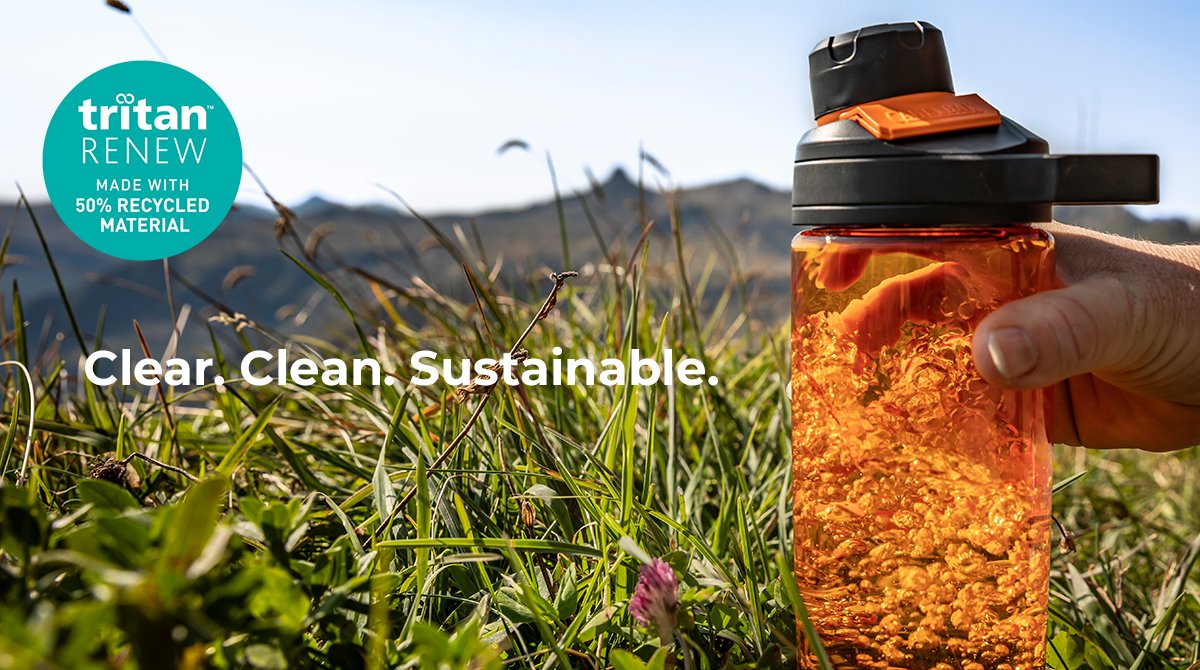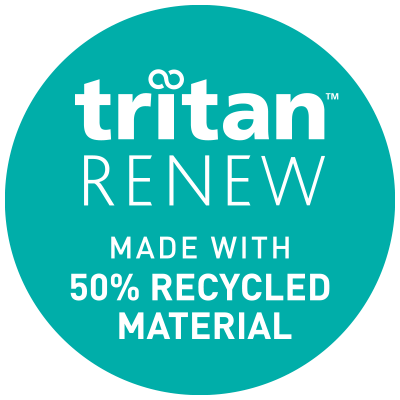Rethinking the Potential of Plastics
Breathing new life into plastic waste is harder than it seems. Much of what’s recycled ends up in landfills and incinerators or is mechanically chipped and recycled into new products that don’t always have the durability needed for daily use. There is science in the solution. Polyester Renewal Technology (PRT) is more effective than mechanical recycling and produces new material that is made with 50% recycled content. Less virgin plastic needed for new products means saving precious environmental resources. Our line of everyday water bottles is now made with Tritan™ Renew – an innovative plastic that utilizes 50% recycled material in place of fossil-based resources. Tritan™ Renew is highly durable, dishwasher safe, and free of BPA, BPS, and BPF chemicals. Our reusable bottles made better.
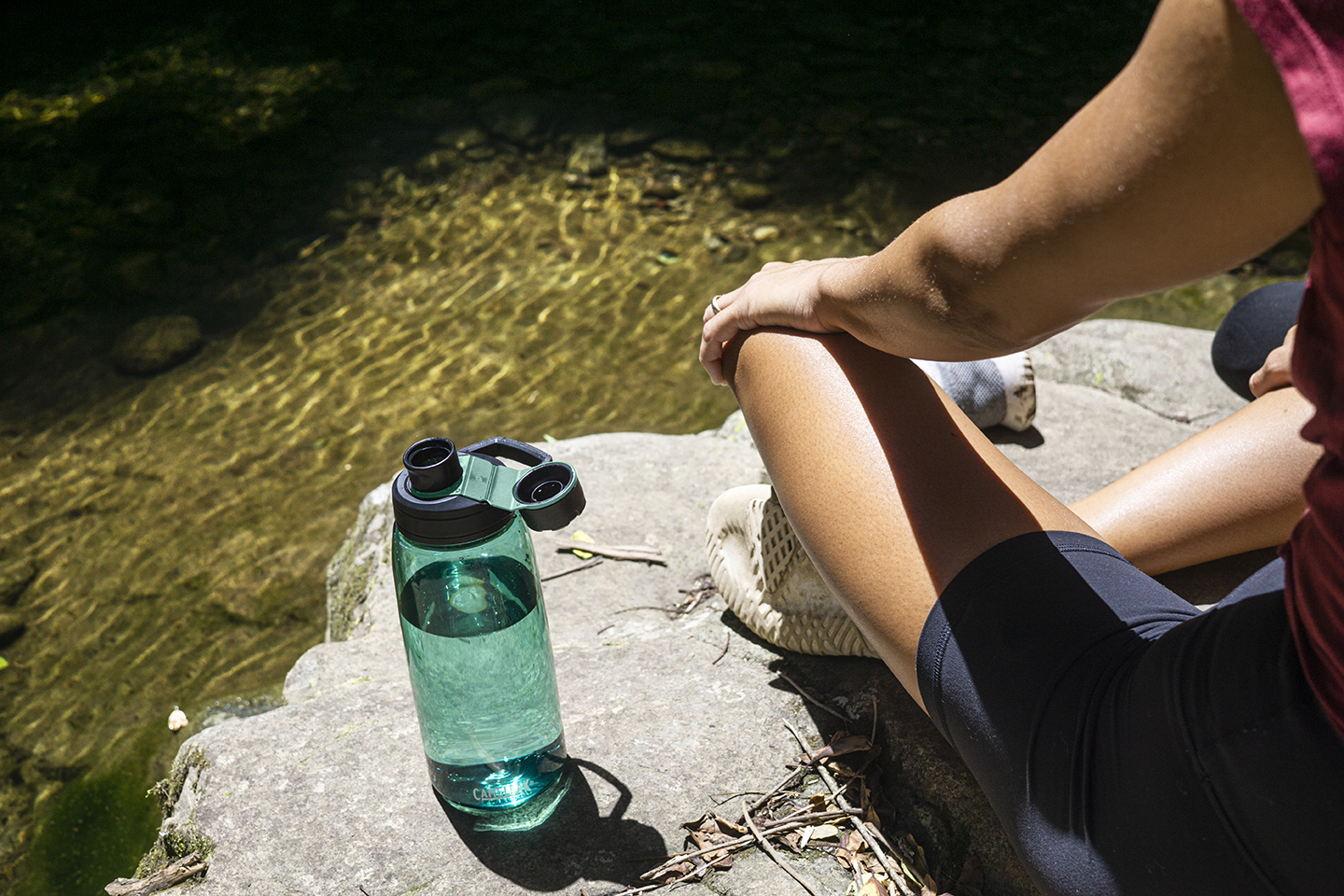
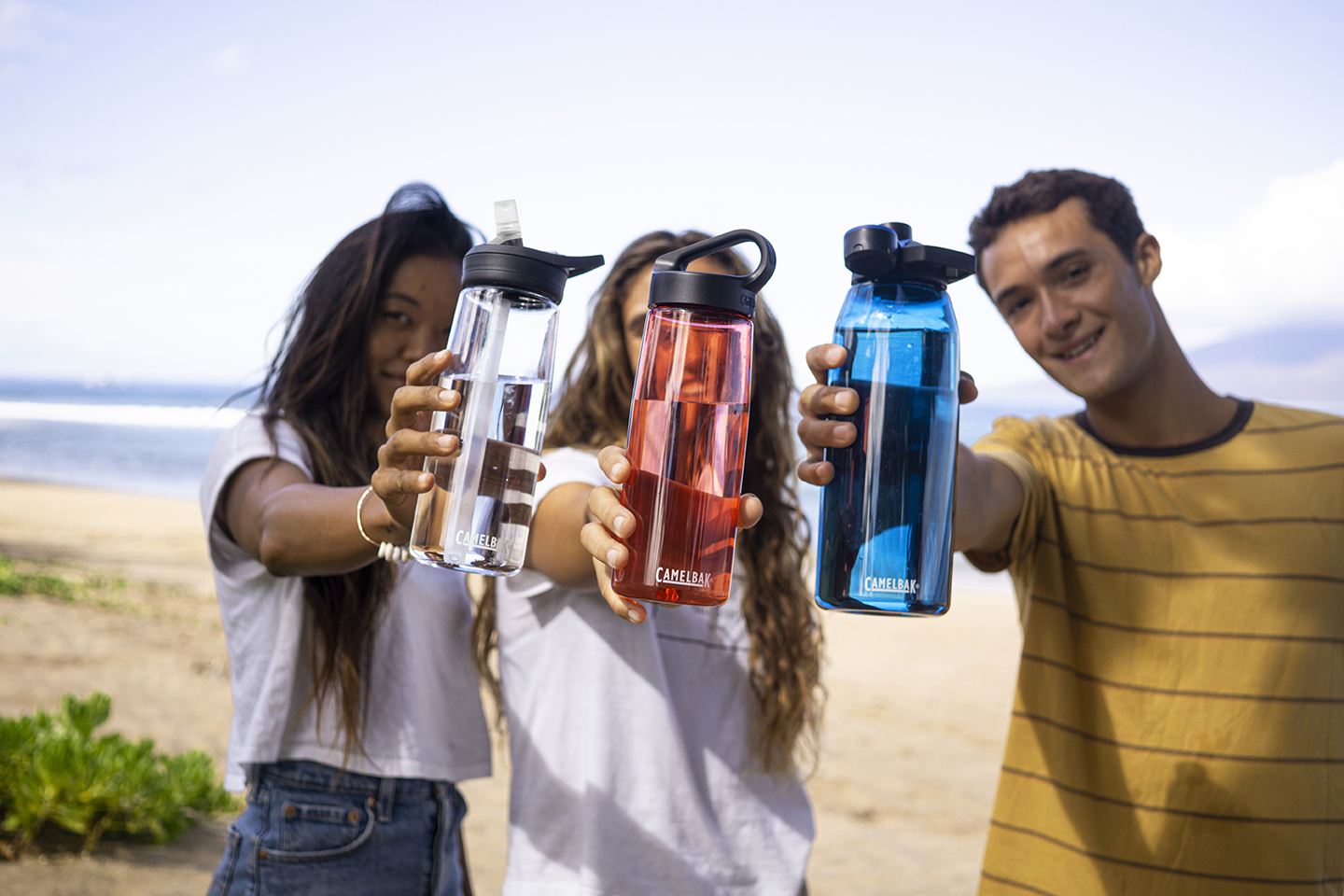
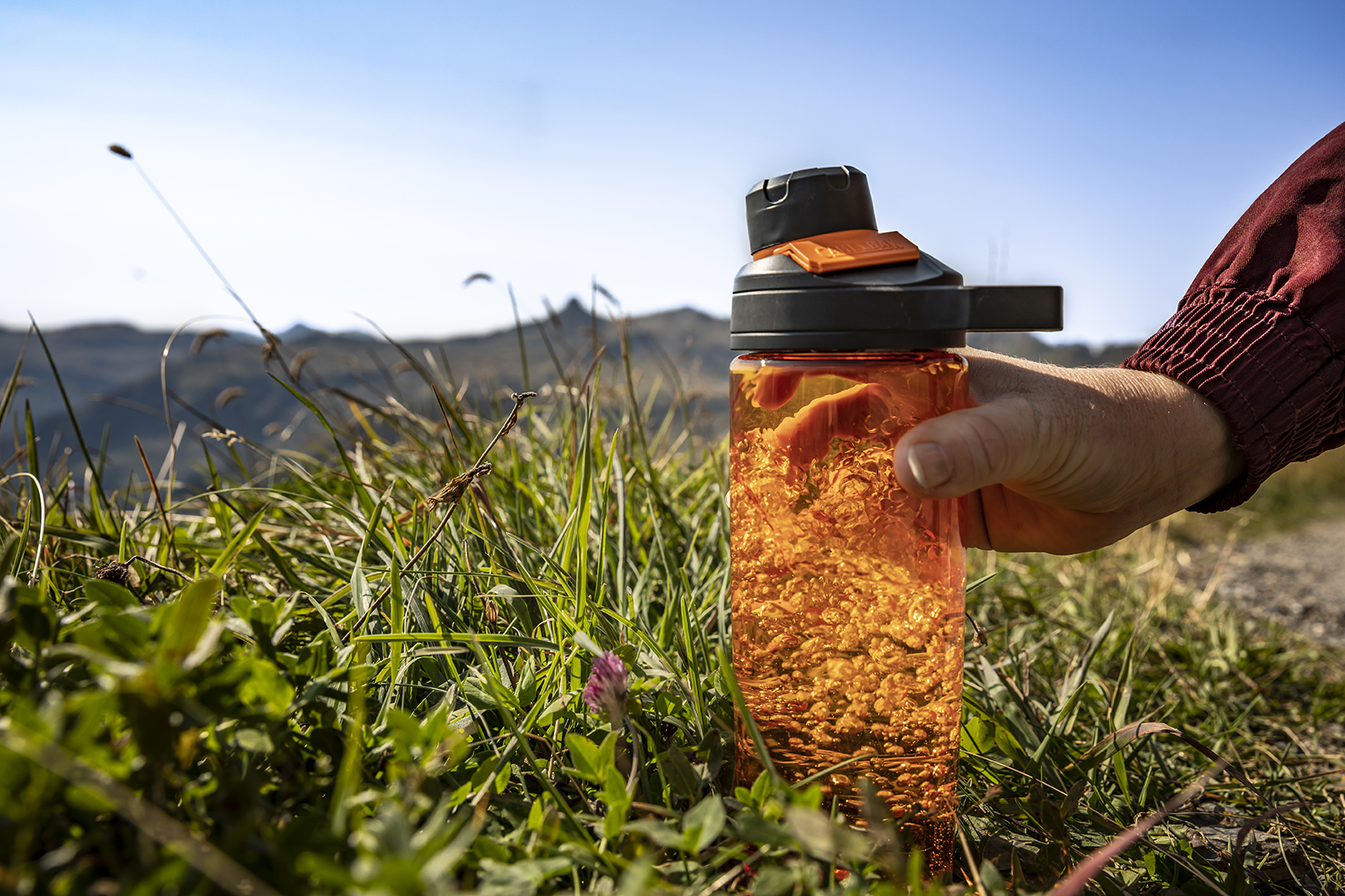
What is Polyester Renewal Technology (PRT)?
Polyester Renewal Technology – also known as PRT – is advanced circular recycling. Unlike mechanical recycling, which essentially cleans, chops, and melts waste material into reused plastic with finite opportunity for continued recycling, the PRT process breaks down waste to the molecular level and rebuilds it to create renewed materials that can be fed back into the circular stream of reinvention. The result is Tritan® Renew, a more sustainable plastic that does not compromise durability, quality, safety, and clarity.
Tritan Renew looks and functions just like original Tritan. How do we know that CamelBak’s Tritan Renew product is a better bottle?
Tritan Renew’s 50% recycled content is backed by the “Mass Balance” approach. Mass balance is an accepted and certified protocol that documents and tracks recycled content through complex manufacturing systems. It’s used when sustainable inputs like recycled plastic are mixed with traditional inputs like fossil-fuel based feedstock. A mass balance approach and a transparent third-party auditing process by the globally recognized ISCC allow us to say with confidence that a bottle made with Tritan Renew utilizes 50% recycled material in place of fossil-based resources
Consumers can feel good purchasing products that save waste material from landfills, leave fossil fuels in the ground, and result in 10% lower carbon emissions than traditional Tritan products.
